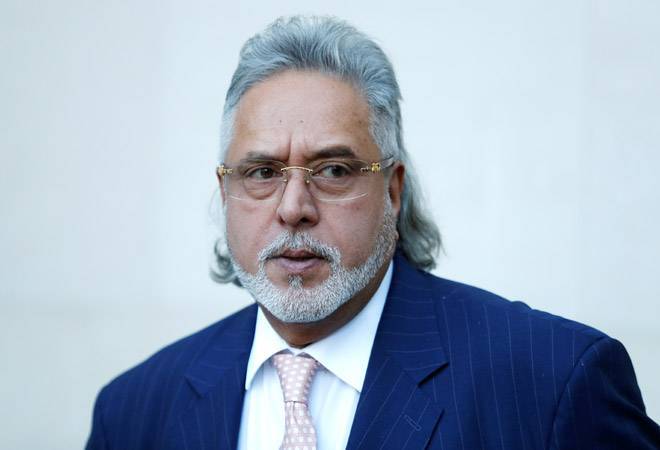London: In a reprieve to embattled liquor tycoon Vijay Mallya, the UK High Court Tuesday allowed him to appeal against his extradition order signed off by the UK home secretary Sajid Javid to face alleged fraud and money laundering charges amounting to Rs 9,000 crores in India.
After hearing arguments from Mallya’s barrister Clare Montgomery, a two-member bench of the Royal Courts of Justice concluded that reasonable arguments could be made on some aspects of Chief Magistrate Emma Arbuthnot’s ruling in favour of a prima facie case of fraud and money laundering against the 63-year-old former Kingfisher Airlines boss last December.
The bench comprising Justices George Leggatt and Andrew Popplewell handed down its judgment at the end of the hearing seeking permission to appeal against extradition to face charges in India of fraud and money laundering amounting to an estimated Rs 9,000 crores.
While the judges dismissed a majority of the five grounds as well as any ground to challenge UK home secretary’s sign off on the extradition order, they did grant permission for Mallya’s defence team to present arguments on aspects of the evidence relied upon to build a case of fraud against Mallya.
They have given directions to submit a draft for the appeal to proceed and ascertain the time frame for the hearing. The case will now proceed to a full hearing stage, the time-frame for which is to be determined in the coming weeks.
Talking to reporters outside the court, Mallya described the ruling as a “vindication”. He told the media that he has always maintained that the charges against him were fabricated and repeated his offer to pay back the debt owed to Indian banks. “I have always maintained that these are false charges, fabricated charges and have no merit. And I think my point has now been vindicated,” said Mallya.
“Two senior-most judges of the High Court have given me permission to appeal the decision of the Westminster Magistrate in the prima facie case on the merits of the charges against me by the government of India… I wanted to win on the prima facie grounds because that is central to everything and deals with the government’s charges against me and the Division Bench felt that decision was appeal-able, and that means the most to me,” he said.
“I still want the banks to take all their money, do what they have to do and leave me in peace,” he added.
Mallya also called on the Indian government to review its policies to support India’s “fragile” aviation industry in the wake of the recent collapse of Jet Airways.
Representatives from the Indian High Commission in London were present in court to observe the proceedings. Mallya, accompanied by his son Sidharth and partner Pinky Lalwani, watched the proceedings in court as Montgomery characterised aspects of Judge Arbuthnot’s ruling as “plain wrong”.
She claimed to have “chased down” and countered many of the claims in the case put forward by the Indian authorities and dismissed the conclusion that there was a “clear and unequivocal false statement” made by Mallya about profits being made by a struggling Kingfisher Airlines at the time the loans were being sought.
“The conclusions are in effect a false dichotomy… [Arbuthnot] failed to recognise that there was a straightforward business failure,” said Montgomery, as she claimed the case presented by the Indian authorities had moved on in essence from that ruled upon by the lower court.
She also questioned the admissibility of many witness statements and once again highlighted the badly paginated documents submitted by the government of India in the extradition case.
The judges made a few interventions to indicate that the offence for which Mallya is wanted by the Indian justice system is not materially different between English and Indian law. “Your starting point is that the judge [Arbuthnot] has made findings of a prima facie case on allegations that you haven’t had a chance to answer,” noted Judge Leggatt, in an early observation on the grounds for the appeal.
The ruling was a reprieve for Mallya, who has lost a UK High Court “leave to appeal” on paper, leading to an oral hearing of his renewal application this week.
Mallya remains on bail on an extradition warrant executed by Scotland Yard in April 2017, involving a bail bond worth 650,000 pounds and other restrictions on his travel. At the end of a year-long extradition trial at Westminster Magistrates’ Court in London last December, Judge Arbuthnot had found “clear evidence of dispersal and misapplication of the loan funds” and accepted a prima facie case of fraud and a conspiracy to launder money against Mallya, as presented by the CPS.
